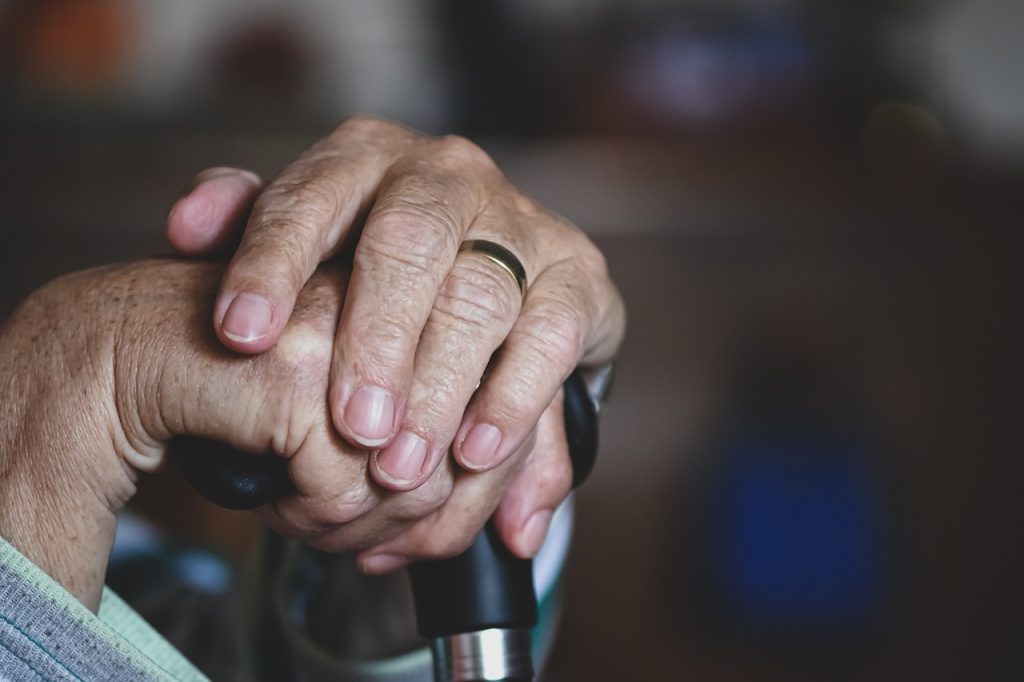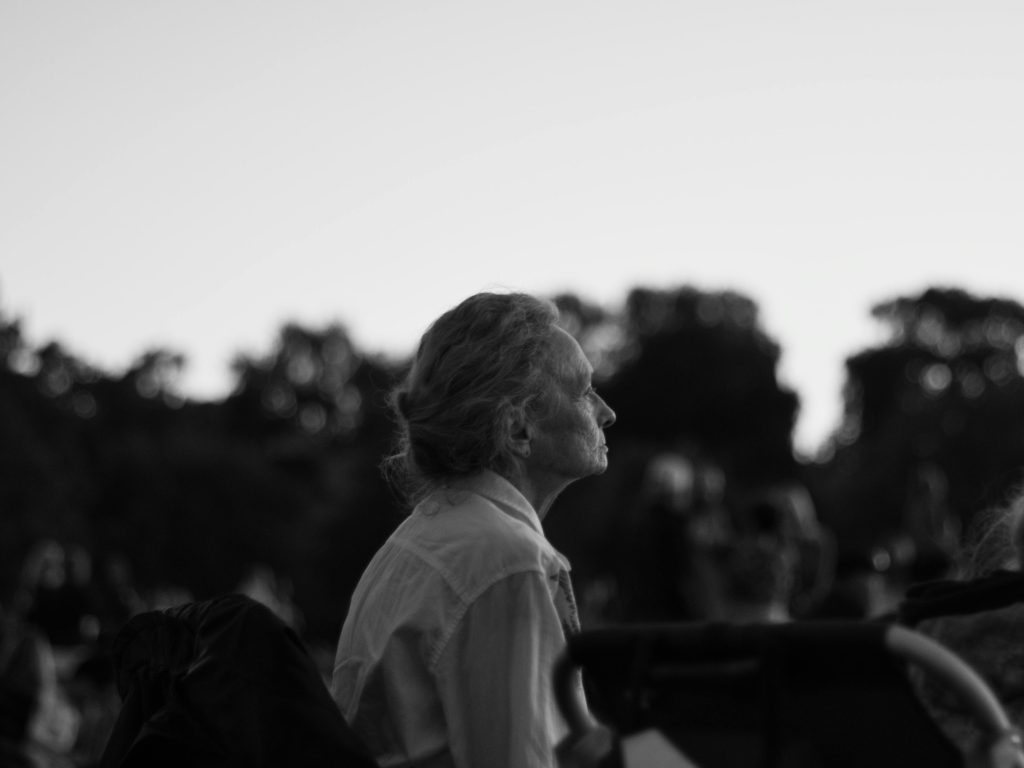Nursing Home Negligence in Olympia
Vulnerable adult neglect can take many forms. In nursing homes, vulnerable adult neglect is always a concern. Regulatory agencies have inspection processes and sanctions in place to ensure proper care. However, even in the best and most compliant of facilities, family members, and loved ones should monitor the health and emotional well-being of the individual in placement.
Note any changes in behavior or other worrisome symptoms that may appear while in the care of the nursing home staff. It isn’t always easy to determine whether your loved one is the victim of substandard care or neglect. Knowing what to do about neglect as soon as you suspect something is wrong is a key element in successfully protecting the safety of a nursing home patient.
In addition to vigilantly monitoring the health and emotional well-being of loved ones in nursing home care, it’s essential for family members to maintain open communication with facility staff and management. Building a rapport with caregivers and administrators can foster a collaborative approach to ensuring the highest standard of care for vulnerable adults. By actively engaging with nursing home personnel, families can better detect and address any signs of neglect or substandard care promptly, thereby safeguarding the safety and well-being of their loved ones. Effective communication channels between family members and nursing home staff can serve as an invaluable resource in advocating for the rights and dignity of vulnerable adults.
Free Case Evaluation
Understanding Nursing Home Negligence Cases
Failure to Chart, Monitor, Assess, and Report Changes of Condition
One common type of patient neglect is the failure to chart, monitor, assess, and report changes in the condition of a patient.
The nursing staff is the front line for patient care and monitoring, and nurses are responsible for the following duties.
- Noting any changes in the condition of each patient
- Charting changes in patients
- Reporting changes to appropriate medical staff for follow-up
If you have a loved one in a nursing home and you believe that they suffered because of missed symptoms or changes in condition, you need to inform the nursing home staff immediately about the issues.
Depending on the specifics of your case, you may need to relocate your loved one for safety reasons and then notify officials. To help you with the legal process, seek the help of a qualified personal injury attorney who specializes in vulnerable adult abuse law.
If you believe your loved one exhibited undetected symptoms prior to a health crisis, they may have been the victim of neglect.
The following changes in condition may constitute neglect and merit investigation:
- Weight gain or loss
- Emotional issues
- Anxiety
Nurses that are overworked or inattentive for any reason may miss subtle changes in behavior or symptoms, leading to delayed treatment and more serious consequences for the patients.
If your loved one has suffered complications or has additional treatment requirements because of the failure to monitor properly and report a change in condition, then it is up to you to take action.
Failure to Seek Consultation with a Specialist
Whether the vulnerable adult patient is in a nursing home, hospital, or another medical center, it is the responsibility of healthcare practitioners to perform the following.
- An examination when needed
- Appropriate tests for the purpose of diagnosis
- Referrals to a specialist when necessary for further evaluation
When a doctor fails to diagnose a patient properly and subsequently doesn’t refer them to see the appropriate specialist, then this lack of action can be construed as neglectful. The consequences of this type of oversight can be very serious and even fatal. A missed diagnosis, a wrong diagnosis, or a delayed diagnosis can prevent proper treatment and delay or interfere with the recovery process.
If you have a loved one who you believe has received this type of substandard care from their medical professional, you may need to intervene to prevent further suffering and health problems. If your loved one is living in a nursing home, you might need to consider moving him or her to a new facility.
You may also have to undertake the following tasks:
- Notify appropriate agencies for the aging.
- Seek compensation for any additional medical bills, loss of quality of life or other damages incurred by the patient.
- Consult an attorney who specializes in personal injury law and vulnerable adult abuse cases for help and guidance.
When a doctor fails to refer a nursing home resident to a specialist for further evaluation, testing, and diagnosis, complications and serious health effects can occur. Some common complications of this type of neglect can include the following scenarios.
- The patient’s condition can deteriorate in the interim period when they should have been seen by a specialist but wasn’t.
- Additional suffering and prolonged discomfort can accompany a failure to diagnose the patient’s condition properly.
- The doctor may misdiagnose and fail to treat an illness or injury.
- Additional recovery time, medical bills and loss of quality of life can occur because of delayed treatment.
Improper Nutrition or Hydration
One sign of potential neglect or abuse is marked weight gain or loss. Vulnerable adult patients should have regulated meal times. Liquid consumption should be monitored and adjusted as necessary by the doctors and nurses on staff. If your loved one is showing changes in weight that you feel are unusual, you should first bring the concern to the attention of the medical staff and nursing home administration.
Significant weight loss in vulnerable adults can be indicative of larger health problems, and can lead to medical complications. A 2002 report in the journal American Family Physician states that vulnerable adult patients who experience unintentional weight loss are at a greater risk of infection, depression, disease complications, and death. In fact, one study from 1994 found nursing home patients had a significantly higher rate of mortality six months after losing 10 percent of body weight.
Ideally, your family member’s medical issues are stringently monitored by the healthcare staff. An unprecedented weight loss or gain may be attributable to a health condition that has gone unnoticed by staff.
Some common causes of weight loss can include the following.
- Adverse reaction to medication
- Gastrointestinal tract disorders
- Hyperthyroidism
- Emotional problems such as depression or anxiety
- Dementia
- Improper nutrition
- Lack of appetite that has gone unnoticed
Some common causes of weight gain can include the following.
- Adverse reactions to medication
- Stress, depression or anxiety
- Improper nutrition (calorie overload)
- Sleep issues
- Hypothyroidism
Many of the causes listed above are psychological or physical medical issues that should be recognized and addressed by the nursing staff that tend to the patient every day. Nursing staff is responsible for monitoring, recording and alerting the doctors to any change in patient condition. Dietary needs should regularly be evaluated based on any changes in weight, diagnosis or medication changes and eating habits should be monitored, especially when they detect a change in weight.
If you believe that the weight change is related to neglect or abuse, remove the patient from care if possible and contact officials as well as an attorney that specializes in personal injury law and vulnerable adult abuse cases. Your attorney will advise you of what rights you have and what the best course of action is for your loved one’s protection.
Failure to Treat Pain
Failure to treat pain is a more common occurrence than you might think. This is a topic that is unpleasant and frightening to discuss, and institutions that have been accused of this type of neglect may attempt to keep the accusations from reaching public awareness.
In a nursing home setting, many times the nursing department is overworked and understaffed. Nurses, who are the front line of patient monitoring, may fail to notice subtle changes in a patient’s behavior or may miss symptoms that are not vocalized by the patient. Patients who are unable to speak or communicate effectively may be challenged to express their suffering adequately to staff, resulting in neglected pain that the patient must endure over long periods of time. This type of situation causes lack of quality of life for the patient and poses serious risks to his or her health and wellbeing.
While the ultimate responsibility for recognizing and addressing symptoms of pain belongs to the professional staff of the nursing home, your close monitoring of care can help identify problems and alert staff to potential situations that need attention. Patients who suffer from compromised cognition or limited ability to express themselves, such as is the case with dementia or Alzheimer’s patients, may not be able to vocalize symptoms or discomfort. Be aware of the following potential signals of pain and watch over your loved one to be sure that appropriate care is administered.
- Facial expressions of discomfort or sadness
- Unexplained emotions including fear or anger
- Rigid posture
- Crying out unexpectedly
If you noticed that your loved one exhibited any of the above behaviors for an extended period, he or she might be experiencing untreated pain. You need to seek help from the medical staff to pinpoint possible symptoms and implement pain management plans. If you fail to receive support from the medical staff, you may need to seek further assistance from the administration or a qualified attorney to ensure proper care for your family member.
There have been multiple lawsuits initiated and won because a nursing home resident suffered unduly as a result of medical neglect. If you believe medical staff responsible for his or her care failed to treat or notice your loved one’s pain, act immediately to protect his or her health and safety. Advise nursing staff, doctors and facility administration and seek the guidance of an attorney who specializes in personal injury law and vulnerable adult abuse cases.
Medication Errors by Nursing Home Staff in Olympia, WA
The healthcare facility and staff should provide a proper standard of care; however, medication errors and nursing home malpractice situations arise, even in reputable institutions. In some cases, substandard care can be a form of vulnerable adult abuse. Medication errors and mishandling can be a prime example of this type of abuse and malpractice. Families should carefully monitor the administration of medicine for their senior loved one.
Medication errors occur when a medical professional makes a mistake in the preparation, dosage or administration of medicine. This can be an error that happens in the pharmacy — as in the case of a pharmacist who misreads a doctor’s handwriting and inaccurately fills a prescription or provides erroneous directions on the medication packaging. This also occurs when nursing staff administers the medicine — as in the case of a nurse mixing one patient’s medicine with another’s or accidentally over- or under-dosing a patient.
Some examples of medication errors follow.
- Not following instructions: Some medications require a certain amount of food or liquid in accompaniment with the dosage. These instructions, when not adhered to, can harm the patient. Nursing staff is responsible for ensuring that the medicine is administered with the appropriate liquid required to ingest it or at a time when food was or was not ingested, as necessary.
- Improper medication handling: Some pills or capsules should not be cut or split under any circumstances. Nursing staff that misses or ignores “do not crush” orders can harm patients by improperly administering pills.
- Improper dosage: This type of error can occur due to pharmacist errors in directions on medication packaging or when nurses hastily or carelessly misread a label. Over- or under-dosage of medication can cause serious problems for patients, especially elderly patients. If you suspect that your loved one has been over- or under-dosed while in the care of medical professionals, you need to take action immediately to protect his or her safety.
- Missed doses or improperly timed doses: Many medical facilities (and nursing homes in particular) are often under-staffed with overworked and rushed. Missed medication doses can cause serious consequences for patients who need their medicine to maintain health and quality of life, and doses that are late or too early can cause harm.
- Poor monitoring: Side effects and resistance to certain medications are common concerns for many patients. Nursing staff is charged with the responsibility of monitoring the reactions of patients to their medicine on an ongoing basis. Overworked or inattentive nurses or doctors may miss important signs that medicine is causing adverse effects or is not working.
These are some examples of medication errors commonly committed in nursing facilities. If you have a loved one in a nursing home or other healthcare environment and believe that a medication error has occurred, you should speak to appropriate staff and facility administration. If your loved one suffered harm as a result of the medication error, you may need to report the incident and contact an attorney who specializes in personal injury law and vulnerable adult abuse cases to review your rights and options for restitution.
Who is liable for damages associated with neglect?
In nursing home neglect or abuse cases, the facility itself is often the responsible party. Some common factors leading to occurrences of neglect include the following.
- Poor hiring practices
- Improper or inadequate training programs
- Lack of necessary staff
- Failure to meet regulatory obligations
- Overworked staff
The facility is typically held liable even if the failure to chart, monitor, assess and report changes can be traced to a single nurse. The nursing home is ultimately responsible for the proper training, oversight and monitoring of its staff.
Where to Report Vulnerable Adult Abuse or Neglect
You can report vulnerable adult abuse or nursing home neglect or abuse to the local police or adult protective services agency. There are also state hotlines available where you can call to report your case. The Washington hotline is 866-363-4276 (866-END-HARM).
The U.S. Administration on Aging is another resource for finding information on where to report suspected vulnerable adult abuse or neglect. You can visit their website at www.eldercare.gov.
Agencies dedicated to the protection of vulnerable adults include the U.S. Department of Justice Office for Victims of Crime – Elder Abuse and Mistreatment and the National Committee for the Prevention of Elder Abuse.
Case Results
Confidential
Nursing home vulnerable adult medication overdose wrongful death in Pierce County.
$5,000,000
Negligence, neglect, and abandonment litigation against the State of Washington, DSHS, and Brighton Enterprises, Inc by Guardian for Vulnerable Adult
$4,755,555
Neglect and abandonment litigation against the State of Washington, DSHS, and Brighton Enterprises Inc by Guardian for Vulnerable Adult
Our Approach to Nursing Home Negligence Cases
At Ron Meyers & Associates PLLC, we understand the profound impact nursing home neglect can have on vulnerable adults and their families. Our approach to handling nursing home negligence cases in Washington is rooted in compassion, dedication, and a relentless pursuit of justice for those who have suffered harm due to the negligence of nursing home facilities and staff.
- Empathy and Understanding: We recognize the sensitivity of nursing home neglect cases and the emotional toll they can take on families. Our legal team approaches each case with empathy and understanding, taking the time to listen to the concerns and experiences of our clients. We strive to create a supportive and caring environment where families feel comfortable sharing their stories.
- Thorough Investigation: We conduct a thorough investigation into the circumstances surrounding the neglect and gather evidence to build a strong case. Our team is experienced in handling complex nursing home negligence claims, and we work with medical experts and specialists to assess the full extent of the harm caused to the vulnerable adult.
- Holding Responsible Parties Accountable: Nursing home facilities and their staff have a duty of care to their residents. When they fail to meet this duty and neglect occurs, they must be held accountable for their actions. Our firm is committed to seeking justice for our clients and ensuring that negligent parties are held responsible for the harm they have caused.
- Pursuing Fair Compensation: We understand that nursing home neglect can result in significant physical, emotional, and financial damages for the affected individuals and their families. Our goal is to pursue fair compensation on behalf of our clients to cover medical expenses, pain and suffering, and any other losses resulting from the neglect.
- Advocating for Change: While obtaining compensation for our clients is crucial, we also recognize the importance of advocating for systemic change to prevent future instances of nursing home neglect. By holding negligent facilities accountable, we aim to promote safer and more compassionate care for vulnerable adults across Washington.
- Guidance and Support: We know that navigating a nursing home negligence case can be overwhelming, especially when dealing with the emotional toll of neglect. Our legal team is dedicated to providing guidance and support throughout the entire process. We keep our clients informed at every step and are readily available to address any questions or concerns.
- Trial-Ready Representation: While many nursing home negligence cases can be resolved through negotiation and settlement, we are always prepared to take a case to trial if necessary. Our trial-ready approach ensures that our clients’ rights are protected and that we can achieve the best possible outcome for them.
How Ron Meyers & Associates Can Help with Nursing Home Negligence Cases
Call Ron Meyers & Associates PLLC for Guidance
Ron Meyers & Associates PLLC specializes in vulnerable adult abuse cases, and we can help you navigate the complex legal process while you care for your loved one. We are experts in personal injury law and vulnerable adult abuse cases in the state of Washington. Call us today at 360-459-5600 to set up a free consultation to discuss your case with an attorney.
Nursing Home Negligence Frequently Asked Questions
Nursing home negligence refers to the failure of a nursing home facility or its staff to provide proper care and attention to vulnerable adults residing in the facility. It can manifest in various forms, including inadequate medical treatment, failure to monitor patients’ health, lack of proper nutrition and hydration, medication errors, and emotional neglect.
Signs of nursing home neglect can vary, but common indicators include unexplained weight loss or gain, untreated medical conditions, poor personal hygiene, unclean living conditions, frequent injuries, emotional withdrawal, and social isolation. If you suspect neglect, it’s essential to address the issue promptly and seek legal assistance in Olympia.
In nursing home negligence cases, both the facility and its staff can be held liable for neglectful actions in Olympia. The facility may be responsible for inadequate hiring, training, or staffing, while individual staff members may be liable for specific negligent acts that contribute to the harm suffered by the resident.
If you suspect nursing home neglect of your loved one, take immediate action by notifying the nursing home staff and administration about your concerns. Document any evidence of neglect, including photos, medical records, or witness statements. If you feel that the nursing home is not addressing the issue adequately, consider seeking legal advice from a qualified personal injury attorney specializing in vulnerable adult abuse cases.
Yes, you can pursue legal action against a nursing home if neglect has caused harm to your loved one. Working with an experienced attorney can help you navigate the complex legal process and seek compensation for medical expenses, pain and suffering, and other damages resulting from the neglect.
In a nursing home negligence case, you may pursue compensation for various damages, including medical expenses, rehabilitation costs, pain and suffering, emotional distress, and loss of quality of life. Your attorney will work to determine the appropriate compensation based on the specific circumstances of the case.
Yes, Washington has a statute of limitations that restricts the time within which you can file a nursing home negligence lawsuit. It’s crucial to consult with an attorney as soon as possible to ensure that you meet the deadlines and preserve your right to seek legal recourse.
Yes, nursing homes can be held accountable for emotional neglect. Emotional neglect can cause severe harm to vulnerable adults, leading to depression, anxiety, and a decline in overall well-being. If you suspect emotional neglect, consult with an attorney to explore your legal options.
Yes, if your loved one suffered from malnutrition due to neglect in a nursing home, you may have grounds for a lawsuit. Malnutrition is a serious concern and can lead to various health complications. An attorney can help you pursue compensation for the harm caused by the facility’s failure to provide proper nutrition.
Yes, nursing home neglect is considered a form of abuse. Neglect occurs when a nursing home fails to meet its duty of care towards vulnerable adults, leading to harm or injury in Olympia. Abuse can take different forms, and neglect is one of the most common forms of abuse in nursing homes.
If you suspect medication errors in a nursing home, promptly report your concerns to the nursing home staff and administration. Medication errors can have severe consequences, so it’s crucial to ensure that your loved one receives the correct medications and dosages. Consult with an attorney if necessary to protect your loved one’s health and rights.
Yes, if you suspect neglect in your loved one’s current nursing home, you have the right to move them to another facility. Ensuring their safety and well-being is a priority. Consider consulting an attorney to guide you through the process and protect your loved one’s rights during the transition.
If your loved one suffered injuries due to a fall in a nursing home, you may be able to pursue a legal claim against the facility. Falls can be preventable with proper care and supervision. An attorney can assess the circumstances and help you seek compensation for the injuries and related expenses.
Yes, if inadequate staffing in a nursing home leads to neglect or harm to your loved one, you may file a lawsuit. The nursing home has a duty to provide an appropriate level of staffing to ensure the safety and well-being of its residents.
Yes, if a loved one has passed away due to nursing home negligence, you may have grounds for a wrongful death lawsuit. Consult with an attorney to understand the legal options available to pursue justice and compensation for the loss of your loved one.
Nursing homes are prohibited from retaliating against residents for reporting neglect or abuse. Federal and state laws protect residents’ rights to voice their concerns without fear of retribution. If you suspect retaliation, inform your attorney so appropriate action can be taken to protect your loved one’s rights.
Yes, you can file a nursing home negligence claim on behalf of your loved one if they have dementia or limited communication abilities. It’s essential to act as their advocate and seek legal representation to protect their rights and pursue compensation for any harm they have suffered.















